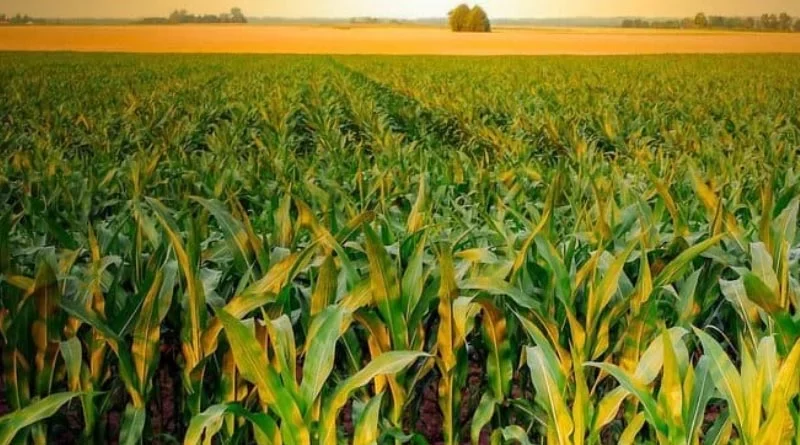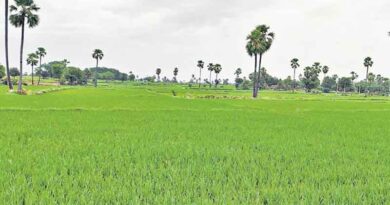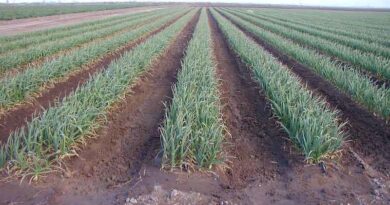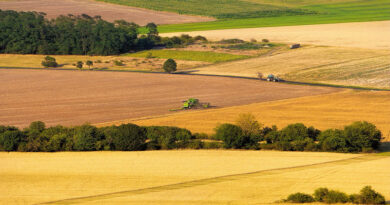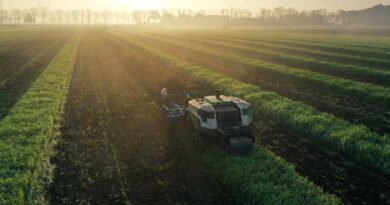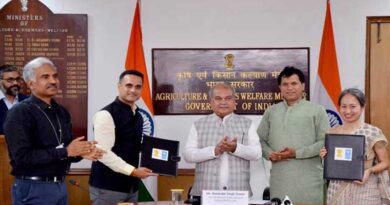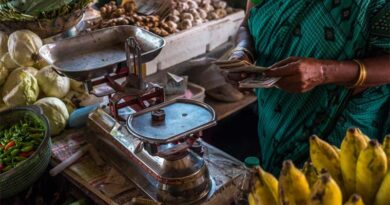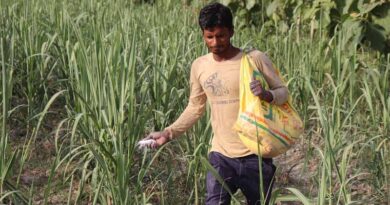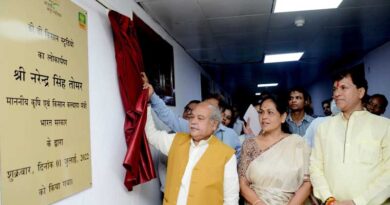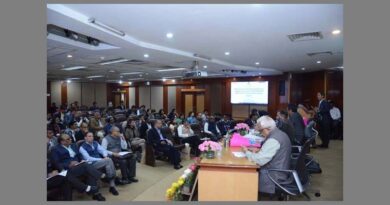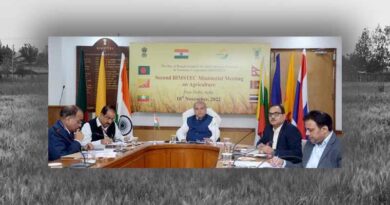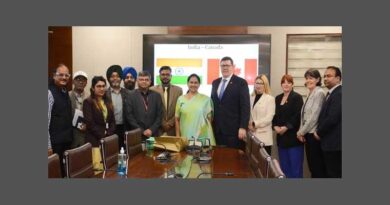17 Important agricultural related schemes of Central Government of India
27 July 2022, New Delhi: The budget allocation for the Ministry of Agriculture and Farmers Welfare has been increased from Rs 1,31,531.19 crore in 2021-22 to Rs 1,32,513.62 crore in 2022-23. The schemes implemented by the Department of Agriculture and Farmers Welfare are for the benefit of all farmers including women and small and marginal farmers.
Government is implementing various schemes and programs to provide assistance to farmers including women and small and marginal farmers as per the eligibility and conditions existing in the scheme guidelines. The details of the major beneficiary oriented schemes implemented by the Department of Agriculture and Farmers Welfare are as follows:
Pradhan Mantri Kisan Samman Nidhi (PM-Kisan)
The objective of this scheme is to meet the financial needs of all the landholder farmers. Under the scheme, Rs.6000/- per year (in three equal installments of Rs.2000/-) is released online by the Central Government directly into the bank accounts of eligible farmers.
Pradhan Mantri Kisan Maan Dhan Yojana (PM-KMY)
Pradhan Mantri Kisan Maandhan Yojana is a government scheme for old age security and social security of small and marginal farmers (SMFs). All small and marginal farmers having cultivable land up to 2 hectares falling in the age group of 18 to 40 years, whose names appear in the land records of the States/UTs as on 01.08.2019, eligible to get benefits under the scheme Huh.
Under this scheme, farmers will get minimum assured pension of Rs 3000 per month after attaining the age of 60 years and if the farmer dies, the farmer’s wife will get 50% pension as family pension. would be entitled. Family pension is applicable only to the spouse.
On maturity of the scheme, a person will be entitled to receive a monthly pension of Rs.3000/-. Pension amount helps pension holders to assist their financial needs.
Applicants in the age group of 18 to 40 years will have to make a monthly contribution between Rs 55 to Rs 200 per month till they attain the age of 60 years.
Once the applicant attains the age of 60 years, he can claim the pension amount. Every month a fixed pension amount is deposited in the pension account of the person concerned.
The eligible small and marginal land holder farmer willing to join the scheme will have to visit the nearest Common Service Center (CSC) to get the benefits.
Rashtriya Krishi Vikas Yojana- Beneficial Approach for Transformation of Agriculture and Allied Sector (RKVY-RAFTAAR)
The aim is to make farming a profitable economic activity through strengthening farmers’ efforts, reducing risk and promoting agribusiness entrepreneurship.
Under this scheme, new agribusiness incubators will be set up as well as existing agribusiness incubators will be strengthened as R-ABI with need-based infrastructure, equipment and manpower. These R-ABIs in turn will invite applications from agricultural entrepreneurs at various stages of the business life cycle (idea/expansion) and provide them an opportunity to generate innovation in agriculture and allied sector.
Pradhan Mantri Fasal Bima Yojana (PMFBY)
Affordable crop insurance scheme for farmers against all non-preventable natural risks. PMFBY provides a comprehensive insurance cover against crop failure which helps in stabilizing the income of farmers and encourages them to adopt innovative practices.
The scheme is mandatory for loanee farmers availing crop loan/KCC account for notified crops. However, voluntary for other/non-loanee farmers who have insurable interest in the insured crop(s).
The maximum premium payable by farmers is 2% for Kharif food and oilseed crops, 1.5% for Rabi food and oilseed crops and 5% for annual commercial/horticulture crops.
Per Drop More Crop (PDMC)
PMKSY-Per Drop More Crop mainly focuses on water use efficiency at the farm level through precision/micro irrigation. Apart from promoting precision irrigation (drip and sprinkler irrigation systems) and better on-farm water management practices to optimize the use of available water resources, this component can be used to supplement micro-irrigation at micro level water storage or water conservation/ Also supports management activities.
National Mission for Beekeeping and Honey (NBHM)
To promote and develop scientific beekeeping in the country. 50% subsidy for farmer from states other than Northeast and Himalayan states and 75% subsidy for Farmer Produce Organization (FPO). 90% subsidy to Northeast and Himalayan states.
Agricultural Infrastructure Fund (AIF)
Medium-long-term debt financing facility through interest subvention and financial assistance for investment in viable projects for post-harvest management, infrastructure and community farm assets.
Interest Subvention Scheme (ISS)
Aim to provide adequate and timely credit support to all farmers through short term crop loans up to Rs.3 lakh.
National Bamboo Mission (NBM)
To increase the area under bamboo plantation in non-forest government and private lands to supplement agricultural income and contribute to resilience to climate change as well as availability of quality raw material requirement of industries.
Soil Health Management (SHM)
Develop and promote soil test based nutrient management to increase nutrient use efficiency
Sub-Mission on Agricultural Extension (SMAE)
To make the extension system farmer driven and farmer accountable by disseminating technology to farmers through new institutional arrangements. Agricultural Technology Management Agency (ATMA) at the district level to conduct extension reforms in a participatory mode.
Sub-Mission on Agricultural Mechanization (SMAM)
Increase the reach of farm mechanization to small and marginal farmers and areas where agricultural power is less available;
Mission for Integrated Development of Horticulture (MIDH)
To promote holistic development of the horticulture sector through area-based regionally differentiated strategies including technology promotion, extension, post-harvest management (PHM), processing and marketing, corresponding to the comparative advantage of each state/region and its diverse agro-climatic characteristics;
Sub-Mission on Seeds and Planting Material (SMSP)
Production and multiplication of high yielding certified/quality seeds of all crops and making them available to farmers
National Food Security Mission (NFSM)
Production of rice, wheat, pulses, coarse cereals (maize and barley), nutritive cereals (sorghum, bajra, ragi and other small millets) and commercial crops (jute, cotton and sugarcane), oilseeds and oilseeds through area expansion and productivity enhancement To increase in a permanent manner in the identified districts of the country.
Integrated Scheme for Agricultural Marketing (ISAM)
Develop marketing infrastructure to effectively handle and manage marketable surpluses of agricultural and allied products including horticulture, livestock, poultry, fisheries, bamboo, minor forest produce and as ancillary products to enhance farmers’ income e.t.c.
Formation and promotion of 10,000 Farmer Produce Organizations (FPOs)
To mobilize small, marginal and landless farmers into FPOs to enhance their economic strength and market linkage to increase their income. This scheme provides additional subsidy to the group as compared to the individual farmer.
Also Read: China: Measures counter food security risks

